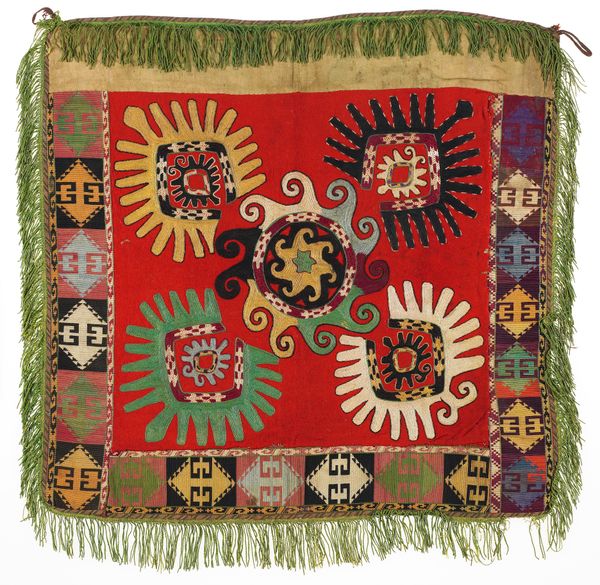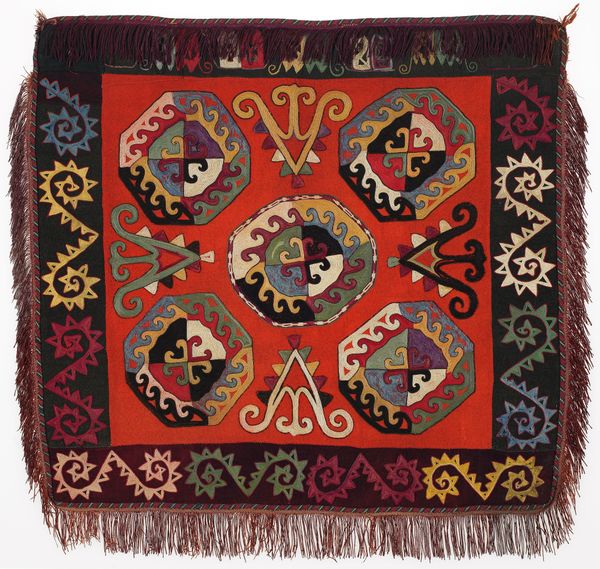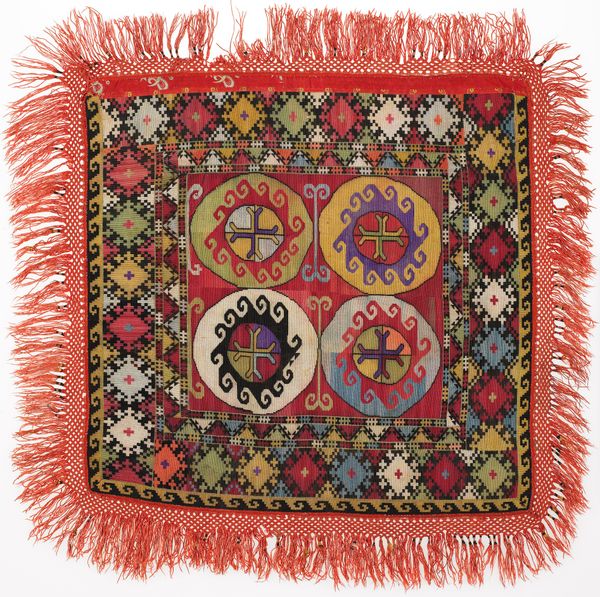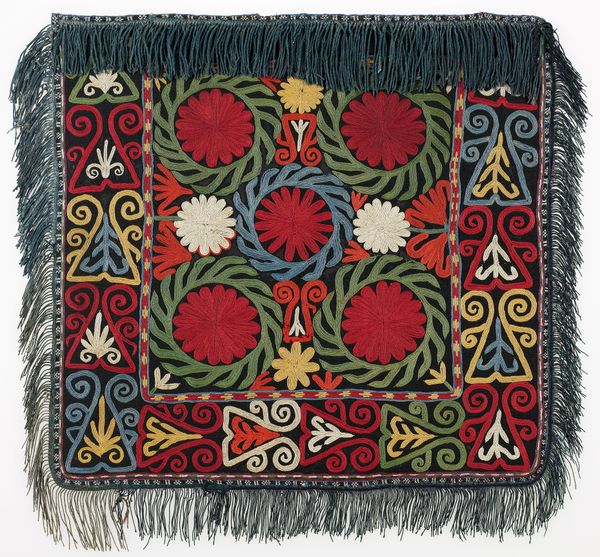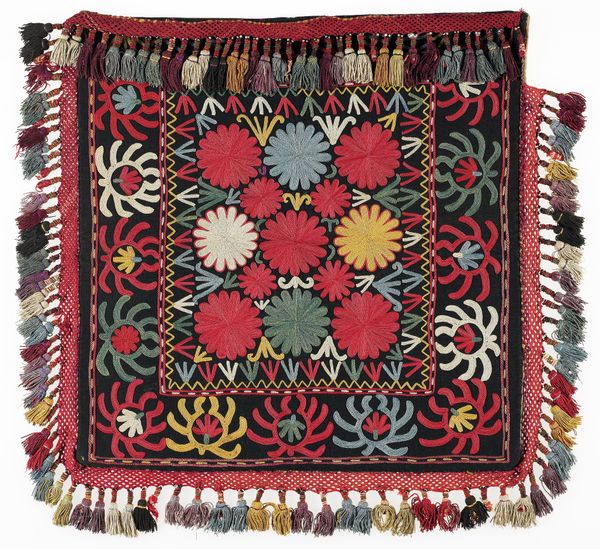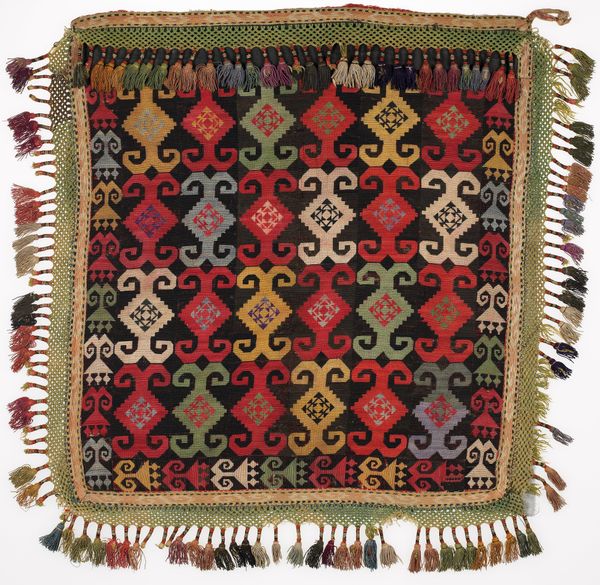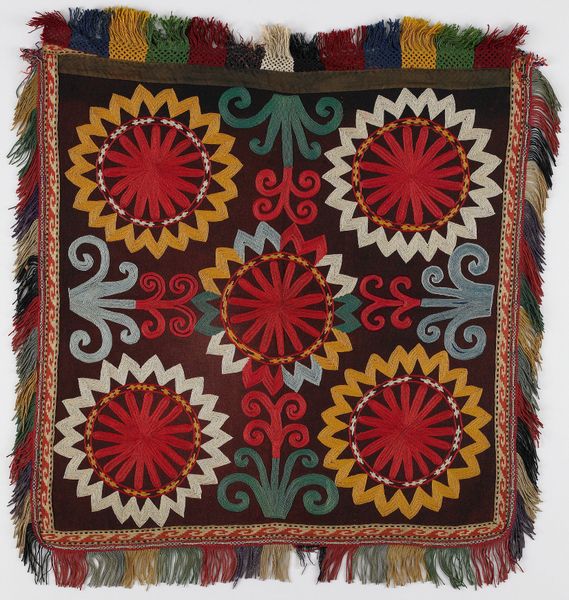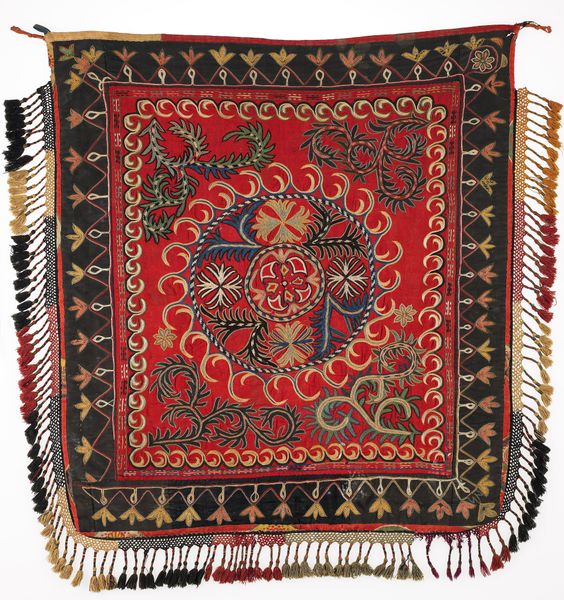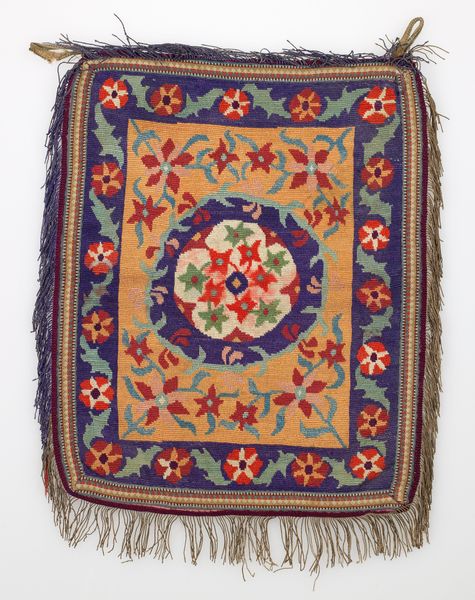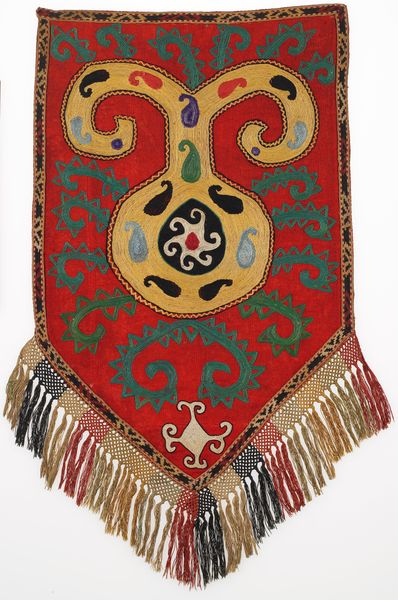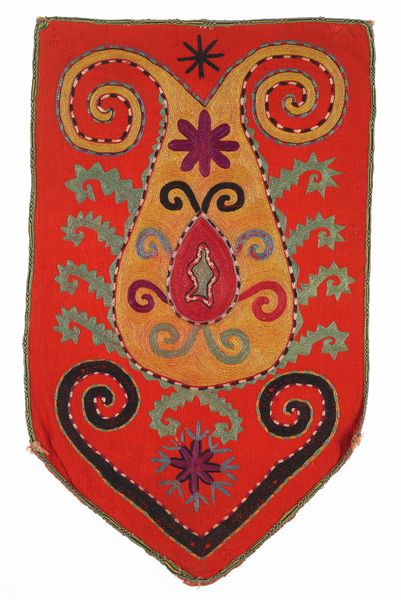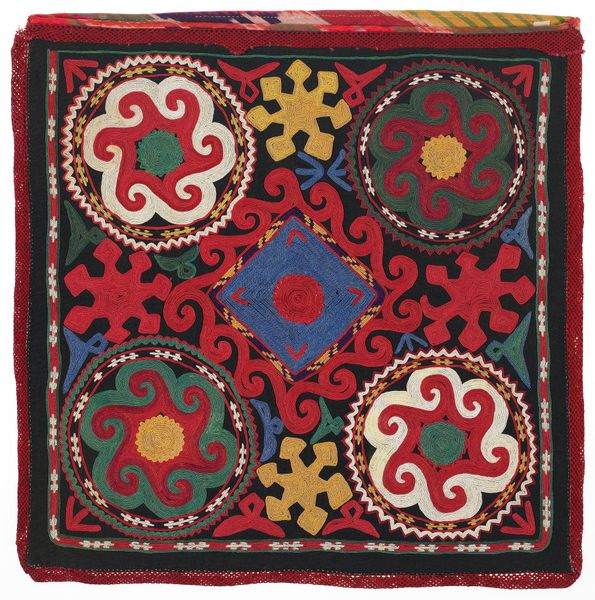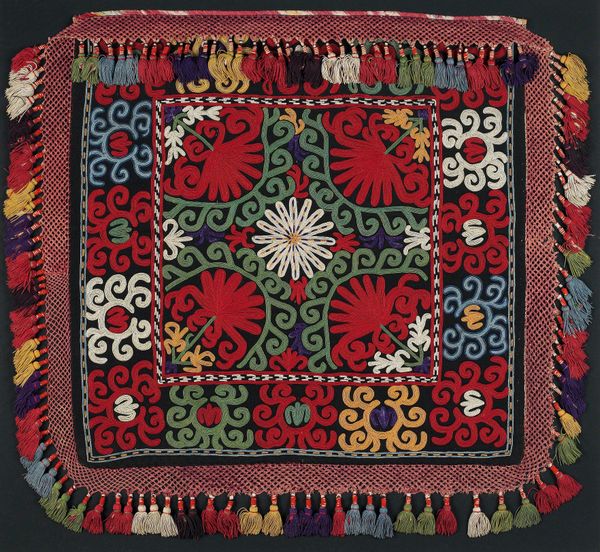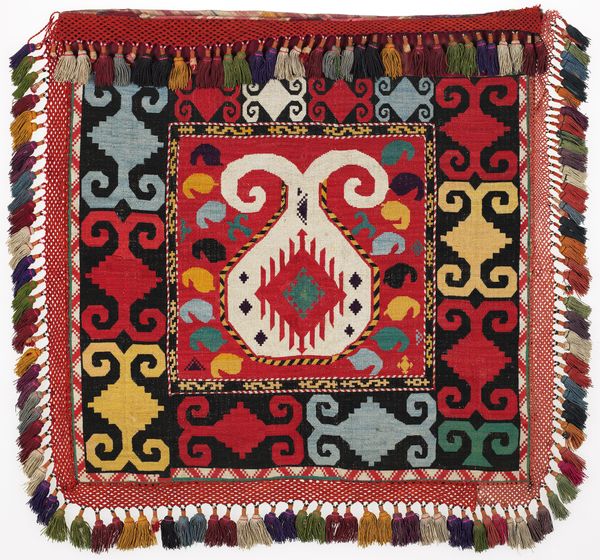
fibre-art, textile
#
pattern heavy
#
natural stone pattern
#
fibre-art
#
naturalistic pattern
#
textile
#
fashion and textile design
#
hand-embroidered
#
pattern background
#
ethnic pattern
#
geometric
#
pattern repetition
#
islamic-art
#
textile design
#
layered pattern
Dimensions: 34 x 31 in. (86.36 x 78.74 cm)
Copyright: Public Domain
Curator: Here we have "Tabaklau ilgich," a late 19th-century textile from Central Asia. Notice its vibrant colors and bold design. It’s made from silk, wool, and cotton. Editor: The initial impression is certainly strong. It's hard not to notice how visually busy it is, but the patterns...they appear to restrain its scale somehow, organizing the whole, flattening the perspective and focusing the gaze. Curator: Absolutely. As an example of Islamic Art, its intricate geometric and stylized floral motifs tell stories, each repetition and variation holding meaning. The sunburst medallions are thought to symbolize life and the cosmos, their presence meant to ward off evil and bring prosperity. Editor: I'm particularly drawn to the symmetry. It's not quite perfect, and that imperfection, that subtle break in repetition, animates it. Note the deliberate scattering of asymmetrical figures interspersed among the primary shapes; their varied orientations create minor key variations in its design. Curator: It’s more than mere decoration; it is a visual language. Its makers are encoding their cultural memory into it. Consider the context: textiles like these were integral parts of a nomadic lifestyle, adorning yurts and camels, narrating family histories. Editor: And how the fringed edges contribute, providing a frame and adding texture, emphasizing the textile nature of this... artifact. Curator: And in some contexts, it was not merely a hanging; it was actually an embroidered veil designed to decorate and enhance a bride's ceremonial presence. This object's status thus signifies family affluence, community prestige, and, significantly, fertility for an upcoming period in its possessor's lineage. Editor: It's a fascinating insight into how structure and form amplify cultural values and social status. A complex interplay of design, material, and intention that transcends simple aesthetics. Curator: Indeed. It connects us to the stories and symbols passed down through generations. Editor: Yes. "Tabaklau ilgich" really speaks volumes by speaking patterns.
Comments
No comments
Be the first to comment and join the conversation on the ultimate creative platform.
